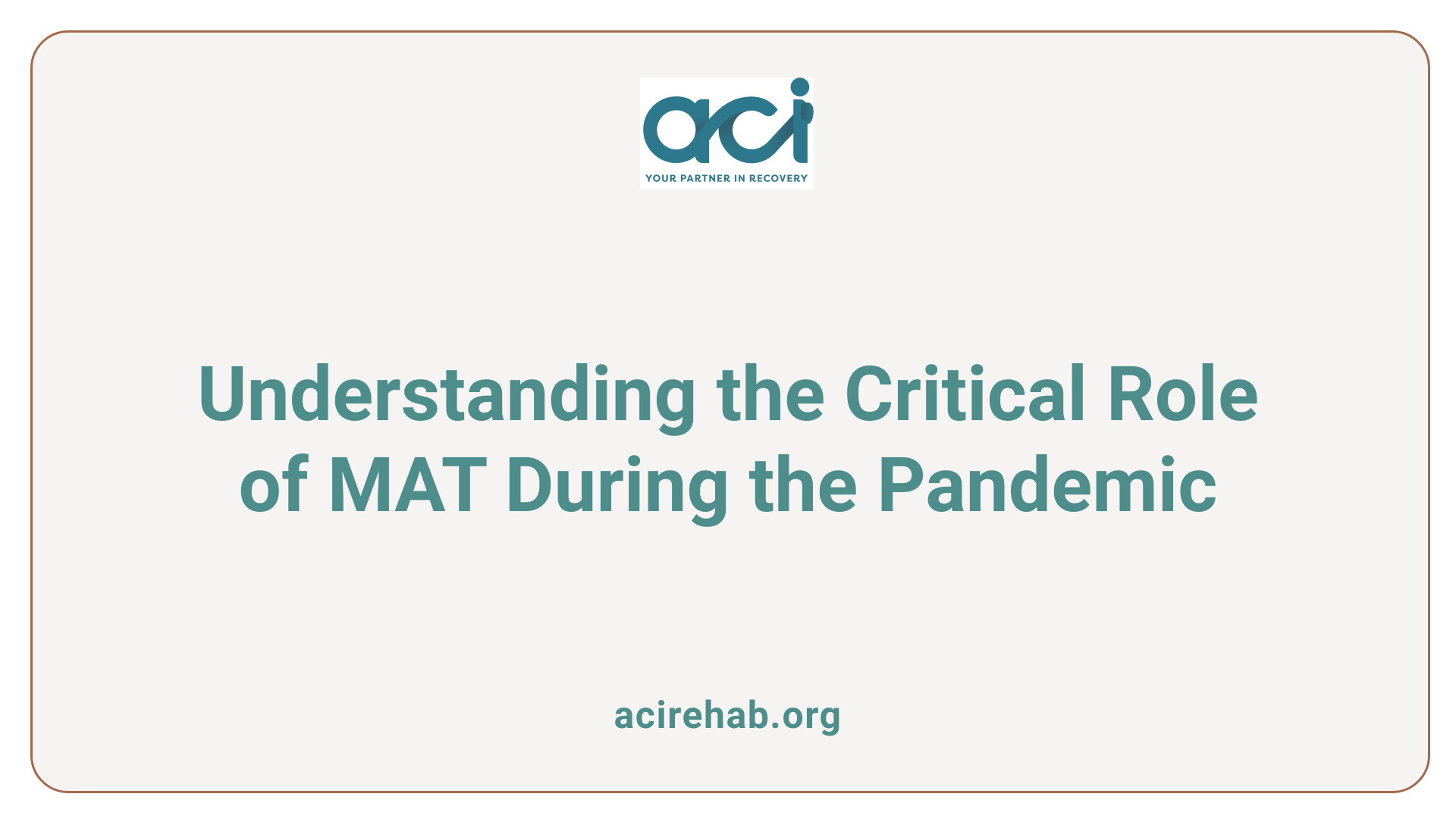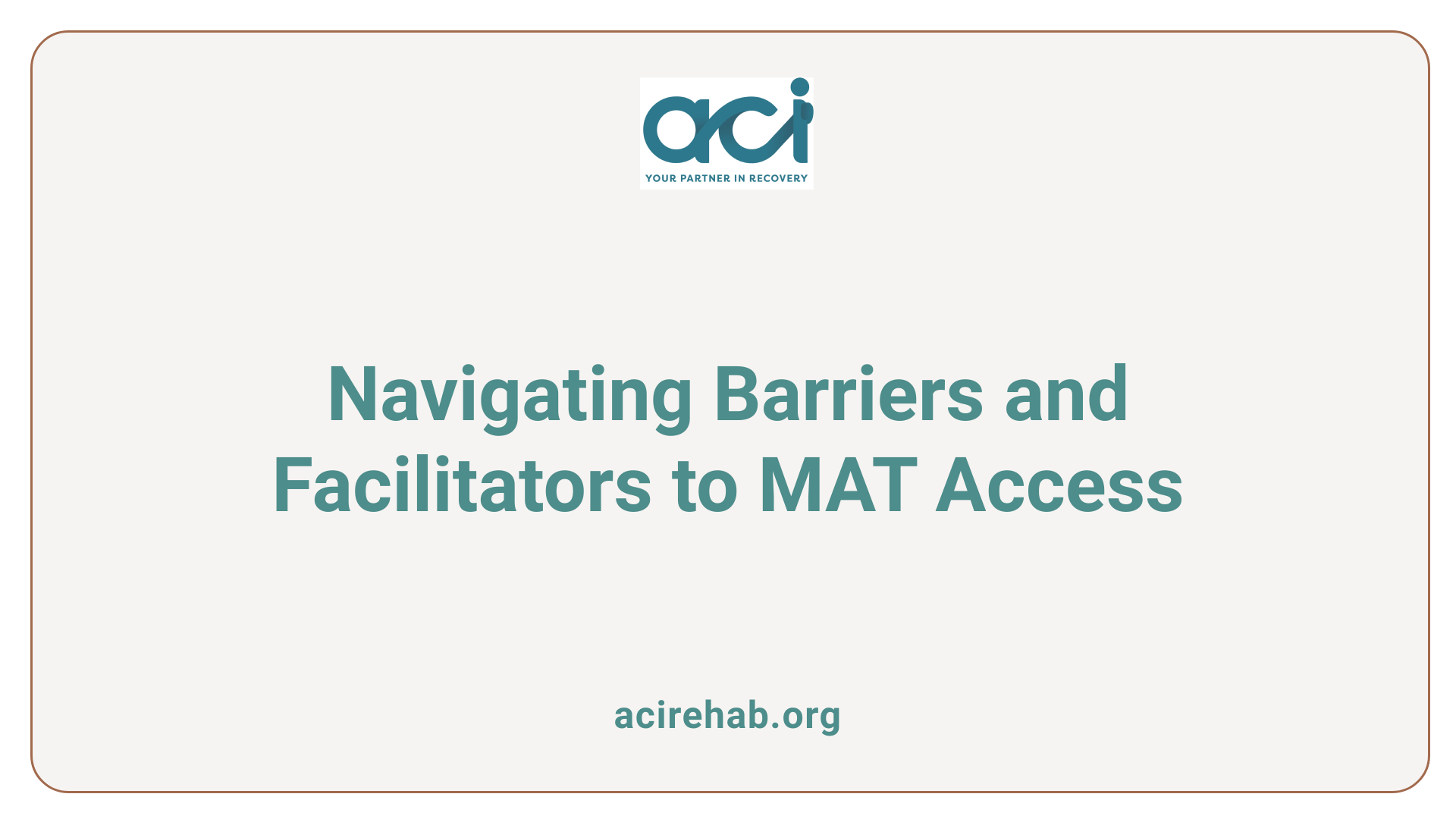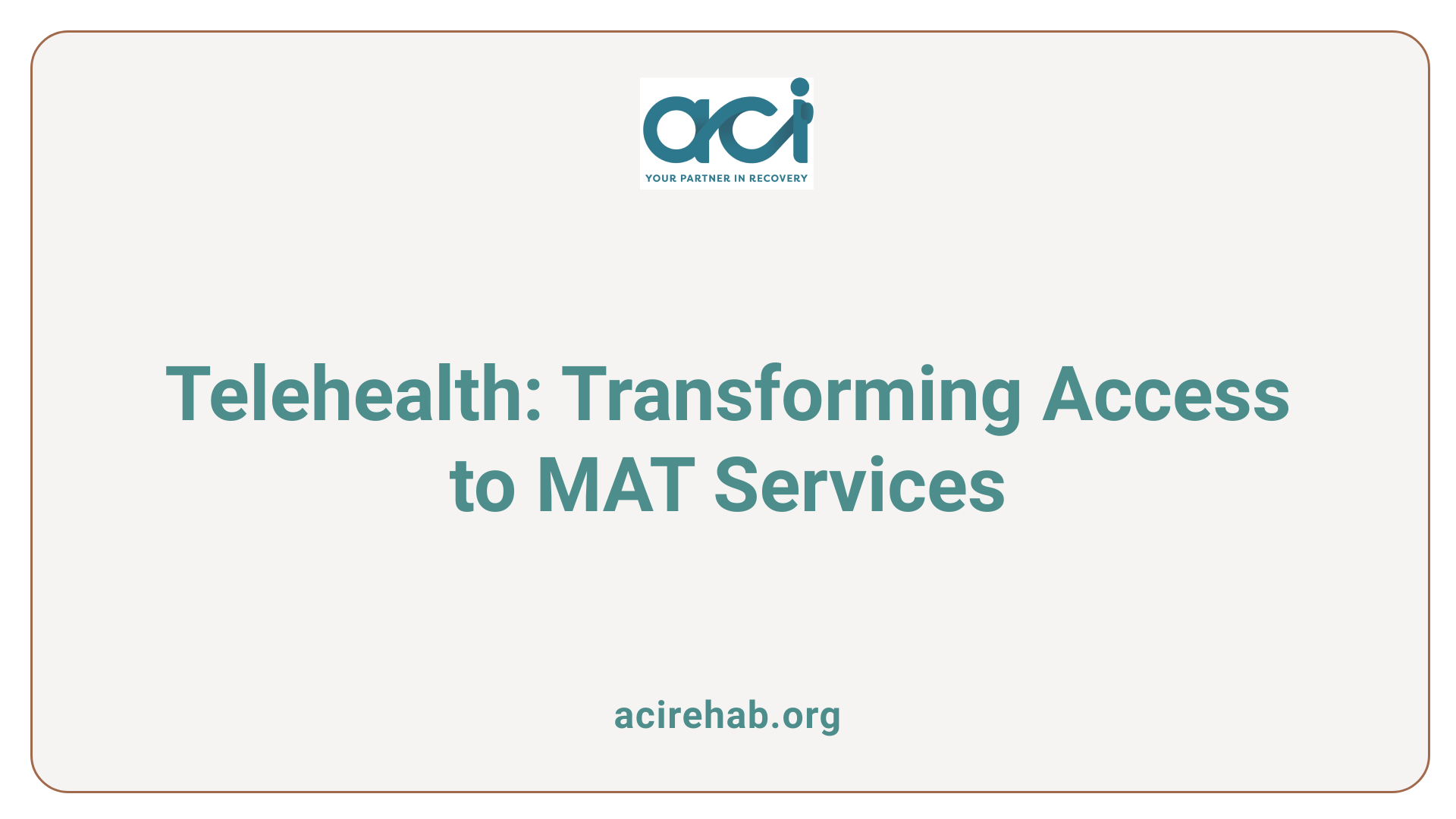Introduction to MAT’s Vital Role
Medication-Assisted Treatment (MAT) combines FDA-approved medications with counseling and behavioral therapies to treat opioid use disorder (OUD) and other substance use disorders. During the COVID-19 pandemic, MAT’s importance has surged due to increased demand and disruptions in traditional treatment access.
Understanding MAT and Its Significance During the Pandemic

What is Medication-Assisted Treatment (MAT) and why is it important during the COVID-19 pandemic?
Medication-Assisted Treatment (MAT) is a comprehensive approach that combines FDA-approved medications with counseling and behavioral therapies to support individuals with substance use disorders, particularly opioid use disorder (OUD). The collaboration of medication and therapy aims to alleviate cravings and withdrawal symptoms, enabling individuals to achieve long-term recovery.
During the COVID-19 pandemic, the importance of MAT grew significantly. With traditional treatment facilities facing closures and limited access due to social distancing policies, many individuals struggled to receive essential care. Continuity of MAT became crucial, as individuals faced increased risks of relapse, withdrawal symptoms, and mental health challenges amidst pandemic stressors.
Policy Enhancements to Support MAT Access
Governments and regulatory bodies rolled out several policy enhancements to maintain treatment continuity during this difficult period. These included:
- Telehealth Services: Expanded telehealth options allowed patients to engage in remote counseling and medication management.
- Increased Take-Home Doses: Guidance from the Substance Abuse and Mental Health Services Administration (SAMHSA) permitted stable patients to receive up to 28 days of take-home doses of medication, reducing the need for frequent clinic visits.
- Regulatory Flexibility: Policies such as the allowance for buprenorphine prescriptions via telemedicine helped to address barriers to treatment access, facilitating ongoing care for many who might otherwise have been unable to attend in-person appointments.
Overall, the adjustments made to MAT delivery during the pandemic played a pivotal role in enhancing access to much-needed support, mitigating the risks associated with OUD and the stress caused by the pandemic.
Medications Utilized in MAT for Opioid Use Disorder
What are some examples of medications used in MAT for opioid use disorder?
Medication-Assisted Treatment (MAT) for opioid use disorder (OUD) incorporates several important medications that play distinct roles in supporting recovery:
- Methadone: This long-acting synthetic opioid agonist is effective in reducing withdrawal symptoms and cravings. It also dampens the euphoric effects of other opioids, promoting stability in patients.
- Buprenorphine: As a partial opioid agonist, buprenorphine helps alleviate withdrawal symptoms while posing a lower risk of overdose compared to full agonists. It is often combined with naloxone in a formulation called Suboxone to discourage misuse.
- Naltrexone: An opioid antagonist, naltrexone works by blocking the effects of opioids on their receptors. This medication is useful in preventing relapse after detoxification, as it eliminates any euphoric response to opioid use.
How do these medications work?
These medications function through different mechanisms of action that support recovery:
- Methadone provides a steady opioid level, preventing fluctuations that can lead to withdrawal and cravings.
- Buprenorphine binds to opioid receptors with less intensity, thus mitigating withdrawal symptoms while also reducing the potential for euphoria and overdose.
- Naltrexone can completely block the action of opioids, making misuse ineffective and deterring patients from reverting to substance use.
What is the comparative efficacy of these medications?
Research indicates that individuals treated with methadone or buprenorphine are about 50% less likely to experience fatal overdoses compared to those receiving no treatment. The efficacy of MAT is markedly enhanced when medications are paired with counseling and behavioral therapies, resulting in improved recovery outcomes. This combination addresses both the medical and psychological aspects of addiction, optimizing chances for long-term sobriety.
Barriers and Facilitators in Accessing MAT During COVID-19

What are common barriers and facilitators for accessing MAT during the COVID-19 pandemic?
Accessing Medication-Assisted Treatment (MAT) during the COVID-19 pandemic presented numerous challenges for individuals seeking help. Common barriers included limited availability of healthcare facilities due to lockdowns and clinic closures. Patients often faced heightened stigma and fear of contracting the virus, which deterred them from pursuing treatment. Travel restrictions and difficulties with public transport further complicated access, making it challenging for many to reach treatment centers.
Conversely, some facilitators emerged during this period. The rapid adoption of telehealth services played a critical role, removing transportation barriers and allowing for remote consultations. Patients could engage with healthcare providers without needing to travel, which was crucial during such restrictive times. Regulatory changes also contributed positively; relaxed HIPAA requirements and the expansion of take-home dosing options for medications enhanced access significantly.
However, several challenges persisted, such as technological barriers for some patients and difficulties maintaining a therapeutic rapport with new patients through virtual means. Overall, while telehealth and regulatory modifications facilitated access, the pandemic highlighted the need for ongoing support to navigate the intricacies of receiving MAT effectively in a virtual context.
Adaptations in MAT Delivery by Healthcare Providers
How have healthcare providers adapted MAT services during the pandemic?
Healthcare providers have made significant adaptations to Medication-Assisted Treatment (MAT) services in response to the challenges posed by the COVID-19 pandemic. One of the most notable changes has been the expansion of telehealth capabilities. This transition allowed healthcare professionals to provide remote counseling and medication management, enabling ongoing support for patients without the need for in-person visits.
Increased Medication Access
Among the measures taken, providers increased the eligibility for take-home medication doses. Under new federal guidelines, stable patients can now receive up to 28 days’ supply of their medication instead of requiring daily visits to a clinic. This adjustment not only enhances medication access but also addresses concerns regarding potential COVID-19 exposure during clinic visits.
Provider Experiences
While adapting to these changes, healthcare providers faced challenges, including retraining both staff and patients to effectively utilize new telehealth technologies. Nonetheless, feedback from many providers indicates a positive outlook on the sustainability of these adaptations post-pandemic, emphasizing the convenience and increased patient satisfaction associated with telehealth. Additionally, changes in reimbursement policies and regulatory adjustments have supported the enhanced utilization of MAT services, ultimately striving to maintain continuity of care for individuals battling opioid use disorder.
Overall, these adaptations have been critical in ensuring that MAT remains accessible and effective during a period of unprecedented challenges.
Regulatory Overhaul During the Pandemic
What regulatory changes have influenced opioid treatment programs during the COVID-19 pandemic?
Regulatory changes during the COVID-19 pandemic significantly influenced opioid treatment programs (OTPs) by increasing access to life-saving treatment. One major shift allowed methadone treatment to dispense increased take-home doses: up to 28 days for stable patients and 14 days for those deemed less stable. This adjustment was vital for reducing clinic crowding and minimizing the potential for virus transmission among vulnerable populations.
Furthermore, the adoption of telehealth became a game changer. Established patients could attend counseling sessions remotely, which was crucial during lockdowns. Nonetheless, new applicants were still required to undergo in-person evaluations initially, which posed a bottleneck for those seeking help. The Substance Abuse and Mental Health Services Administration (SAMHSA) issued emergency exemptions that relaxed these requirements, paving the way for future policy modifications.
Future implications
The significant regulatory adjustments seen during the pandemic are expected to have lasting implications. Proposals to make some of these temporary measures permanent have begun to surface, with a target timeline set for February 2024. These permanent measures would streamline access to medications like buprenorphine without the necessity of an initial physical evaluation, representing a crucial shift towards more flexible, patient-friendly care models.
Patient outcomes
These changes have already shown promising impacts on patient outcomes. By enhancing access through increased take-home medications and telehealth options, many OTP directors reported improvements in both treatment engagement and patient responsibility. Patients have expressed greater satisfaction with care delivery, particularly regarding the convenience and safety associated with remote consultations and medication delivery. Overall, these adaptations have been pivotal in maintaining continuity of care and supporting individuals struggling with opioid use disorder during a global health crisis.
Telehealth as a Game Changer for MAT

Rise of Virtual Consultations
The COVID-19 pandemic accelerated the adoption of telehealth within Medication-Assisted Treatment (MAT). With clinic closures and social distancing mandates, virtual consultations emerged as a viable option for individuals seeking support in their recovery journey. Regulations were modified to allow healthcare providers to conduct evaluations and prescribe medications like buprenorphine remotely, facilitating access to treatment for those in need.
Patient Engagement
Telehealth has been particularly beneficial in maintaining patient engagement during these trying times. Evidence suggests that many patients expressed satisfaction with virtual visits, eliminating travel barriers and enabling individuals in rural areas to receive care without significant disruption. From September 2019 to August 2020, 68% of patients engaged on time despite the challenges presented by the pandemic, showcasing an encouraging level of commitment to treatment.
Pros and Cons
While the shift to telehealth has improved access, challenges remain. Patients may struggle with the lack of daily in-person contact and may feel additional stigma associated with opioid use disorder. Conversely, the convenience of home delivery of medications and virtual consultations enhances continuity of care, proving to be pivotal for many during the pandemic.
In summary, telehealth has transformed MAT delivery, offering new avenues for patient support while underscoring the need for ongoing assessment of its long-term effects in supporting individuals battling substance use disorders.
Exploring the Impact on Patients
Patient Challenges
During the COVID-19 pandemic, patients undergoing Medication-Assisted Treatment (MAT) faced numerous challenges. Access to treatment was significantly hampered by clinic closures and travel restrictions, causing many to struggle with maintaining their recovery. Unsurprisingly, an increase in stress and anxiety levels correlated with these disruptions, leading to heightened feelings of isolation and mood disturbances.
Implications on Efficacy
The efficacy of MAT programs was affected as well. Research indicates that disruptions in service delivery and the transition to telehealth models resulted in decreased direct contact between patients and providers. Although telemedicine provided an alternative, it often led to lower initial medication initiation rates due to factors like lack of in-person evaluations and inventory issues. Approximately 68% of patients were able to achieve timely medication access, but gaps in opportunity still existed for many.
Social Determinants Impact
Moreover, social determinants of health played a crucial role in successful MAT retention. Issues like financial strain and food insecurity contributed significantly to treatment challenges, especially during the pandemic. Vulnerable populations were particularly impacted, making it clear that comprehensive support systems are necessary to help maintain access to these essential services.
Stigma and Public Perception During the Pandemic
Impact of stigma on treatment
The stigma surrounding substance use disorders can severely hinder individuals seeking Medication-Assisted Treatment (MAT). During the COVID-19 pandemic, this stigma was exacerbated, making patients feel more isolated and reluctant to engage with treatment providers or peers. Negative societal perceptions create barriers to accessing care, which can lead to delays in treatment and increased relapses.
Patient and provider experiences
Both patients and providers experienced heightened challenges due to stigma during the pandemic. Patients reported feelings of shame and judgment when trying to access care, while providers faced difficulties in delivering treatment remotely because of misconceptions about addiction. The transition to telehealth created an opportunity to reduce stigma, allowing for private consultations in a less judgmental setting.
Overcoming stigma
Efforts to combat stigma have become increasingly important. Educational initiatives that promote understanding of substance use disorders as health conditions can help reshape perceptions. Providers are encouraged to create welcoming environments and support systems, emphasizing that seeking help is a strength rather than a weakness, and programs have utilized virtual meetings to foster a sense of community during the pandemic.
Innovative Practices in MAT Delivery

Telehealth Innovations
The COVID-19 pandemic led to a rapid expansion of telehealth within Medication-Assisted Treatment (MAT) programs. With regulations relaxed to allow virtual evaluations for medications like buprenorphine, healthcare providers utilized live videoconferencing to connect with patients. This transition minimized the risks associated with in-person visits and maintained access to crucial treatments, especially for those without transportation options.
Community-Based Solutions
Community integration became pivotal during the pandemic. MAT programs implemented home delivery of medications and mail-order pharmacy options, ensuring that patients received their prescriptions without needing to visit clinics. Enhanced access to care helped mitigate relapse risks while encouraging patient engagement, even amidst social distancing restrictions.
Best Practices
Best practices developed during this period included increasing take-home medication doses and adopting virtual counseling sessions. These strategies not only sustained treatment adherence but also improved patient satisfaction, fostering a sense of responsibility among individuals in recovery. Through streamlined protocols and innovative solutions, MAT programs adapted to the challenges posed by COVID-19, setting a precedent for future care models.
Examining the Role of Interdisciplinary Support
Mental Health Integration
The COVID-19 pandemic has underscored the critical need for integrating mental health support into Medication-Assisted Treatment (MAT). Stress and anxiety levels have significantly surged, adversely affecting patients who already face challenges due to opioid use disorder. Healthcare providers are recognizing the importance of addressing these psychological aspects to enhance recovery outcomes.
Support Systems
Social support has proven vital during times of isolation. Encouraging virtual support groups and ongoing therapy can bridge the gap for those in recovery from substance use disorders. Strong networks help prevent relapse by providing emotional stability and encouragement throughout the recovery process.
Collaborative Care Models
Models that promote collaboration among healthcare providers—such as combining services from physicians, counselors, and social workers—can lead to more comprehensive care. This multidisciplinary approach not only enhances patient engagement but also improves adherence to treatment protocols, ultimately fostering better health outcomes in the context of ongoing pandemic challenges.
| Support Aspect | Importance in MAT | Pandemic Adaptation |
|---|---|---|
| Mental Health Integration | Addresses psychological barriers | Virtual mental health sessions |
| Support Systems | Prevents isolation and relapse | Online support groups |
| Collaborative Care Models | Enhances comprehensive treatment | Interdisciplinary virtual consultations |
Future Directions and Research in MAT Post-Pandemic

Long-term Impact of Changes
The adjustments made to Medication-Assisted Treatment (MAT) during the COVID-19 pandemic, particularly the expansion of telehealth services and increased take-home doses for stable patients, are likely to reshape treatment delivery models for the long term.
Increased flexibility has led to higher patient satisfaction and participation rates, particularly among those from rural areas lacking transportation.
Research Findings
Ongoing studies continue to evaluate the effectiveness of these adjustments, considering metrics such as treatment retention rates and patient health outcomes. Notably, research comparing pre-pandemic and pandemic treatment experiences indicates that telehealth may lower illicit substance use and enhance patient engagement.
Research findings can inform future additions to MAT programs and potentially address gaps in access and quality of care.
Future Policy Recommendations
Advocates emphasize the need for permanent policy changes enhancing access to MAT. Recommendations include making telehealth services a standard offering for treatment initiation and lifting restrictions on medication dispensing. Incorporating ongoing mental health support for MAT patients is also crucial to ensuring comprehensive care and promoting lasting recovery.
Reflecting on MAT’s Evolution Amidst Adversity
The ongoing adjustments in Medication-Assisted Treatment (MAT) during the COVID-19 pandemic have resulted in significant evolutions in the delivery and accessibility of care for opioid use disorder. While challenges remain, the regulatory flexibility, integration of telehealth, and innovative practices adopted during this period have strengthened the resilience of MAT programs. As lessons from these adaptations continue to unfold, they pave the way for permanent changes that can enhance patient outcomes and widen the treatment reach, thus addressing the broader opioid crisis with renewed vigor and efficacy.
References
- Medication-Assisted Treatment during COVID-19 – Talbh
- Factors Affecting Initiation and Retention of Medication-Assisted …
- [PDF] programs-providing-medication-assisted-treatment-for-opioid-use …
- The development and validation of the pandemic medication …
- Accessing Medication-Assisted Treatment (MAT) during COVID-19 …
- The impact of COVID-19 on opioid treatment programs in the United …
- Comparing Treatment for Opioid Use Disorder before and during the …
- Medication-Assisted Treatment In The Time Of Covid-19

